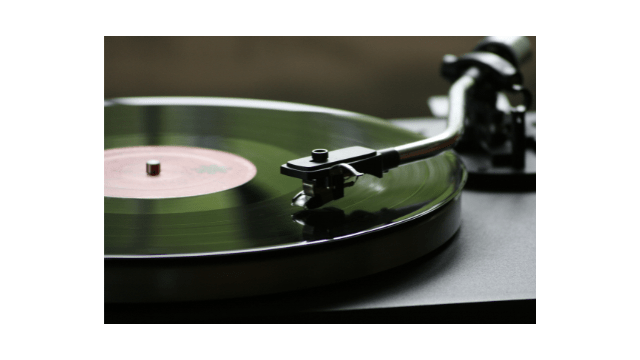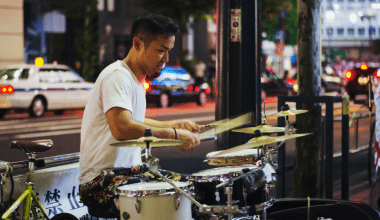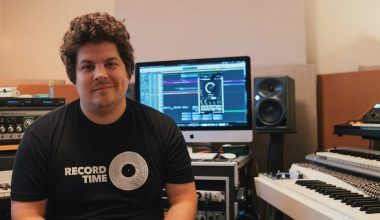Gang rappers are musicians who use their songs to tell stories about life in tough neighborhoods. Their music reflects their real-life experiences, including struggles with poverty, violence, and survival. These artists take the raw truth of their lives and turn it into something powerful and moving.
For many, gang rap is more than just music. It’s a voice for the unheard, a medium to express pain, joy, and everything in between. Gang rappers connect deeply with their listeners because their stories are real. They talk about things many people go through but don’t often see in mainstream media.
Where Did Gang Rap Start?
Gang rap began in the 1980s in the United States, in cities like Los Angeles and New York. These were places where many communities faced challenges like gang violence, unemployment, and discrimination. Some of the first gang rappers, like N.W.A. (Niggaz Wit Attitudes), used their music to talk about these struggles.
Their songs were often harsh and uncensored because they were telling the truth about their lives. Early gang rap wasn’t just about gangs or crime; it was a form of protest against unfair systems and a way to shine a light on issues like police brutality and racial inequality.
Why Is Gang Rap Important?
Gang rap is important because it gives a voice to people who often feel invisible in society. These rappers speak for their communities, sharing stories that might otherwise go untold. For many fans, their music feels like someone finally understands their struggles.
Here are a few reasons why gang rap matters:
- It’s Real: Gang rap doesn’t sugarcoat reality. It tells it like it is, even if it’s hard to hear.
- It’s Inspiring: Many gang rappers talk about how they overcame tough situations. Their stories motivate listeners to keep fighting, no matter how hard life gets.
- It Creates Awareness: These songs often highlight problems like poverty, inequality, and violence, helping others understand what’s happening in these communities.
What Makes Gang Rappers Different?
Gang rappers are different from other musicians because they draw from their own lives. Their music often has:
- Raw Emotions: Gang rap is full of feelings like anger, pain, and hope.
- Storytelling: They use their songs to tell detailed stories, painting a picture of what it’s like to live their lives.
- Street Language: Gang rappers often use slang or local expressions, making their songs feel authentic.
Their style may not be polished, but that’s what makes it powerful. They focus on being real rather than perfect.
How Gang Rappers Changed Music
Gang rappers have transformed music in many ways. They’ve brought attention to a different side of life and inspired other artists to be more honest in their work. They’ve also influenced other genres like grime in the UK, desi hip-hop in India, and Afrobeat in Africa.
Key Achievements of Gang Rappers:
- ’ve turned street culture into a global phenomenon.
- They’ve inspired artists worldwide to use music as a form of storytelling.
- They’ve shown that music can be both entertaining and meaningful.
Stories of Famous Gang Rappers
Let’s take a look at a few gang rappers who have left a big mark on the world:
- Tupac Shakur: Known for his poetic lyrics, Tupac talked about life, love, and the struggles of being Black in America. His songs like “Changes” and “Dear Mama” are still loved today.
- Kendrick Lamar: Kendrick grew up in a rough neighborhood but used his experiences to create award-winning music. His album Good Kid, M.A.A.D City is a masterpiece that tells the story of his life.
- Nipsey Hussle: Nipsey not only made music but also worked to improve his community by creating jobs and helping others succeed.
These rappers show that it’s possible to rise above challenges and use music to make a difference.
Gang Rap Goes Global
Gang rap didn’t stay in the United States. It has inspired artists all over the world. Here are some examples:
- In the UK: Grime and drill music are heavily influenced by gang rap. Artists like Stormzy and Skepta have used it to share their own stories of struggle.
- In India: Desi hip-hop artists like Divine and Naezy rap about life in Indian slums, giving a voice to the country’s underprivileged communities.
- In Africa: Afro-rap has adopted the themes of gang rap, talking about issues like corruption and poverty.
Gang rap has shown that music can cross borders and connect people everywhere.
Why Do People Love Gang Rap?
People love gang rap because it’s real and relatable. It’s not about pretending life is perfect—it’s about finding beauty in the struggle. Fans often say that gang rap helps them feel seen and understood.
Here are some reasons why listeners connect with gang rap:
- ’s Honest: Gang rappers don’t hide their flaws or struggles.
- It’s Empowering: Their stories show that it’s possible to overcome obstacles.
- It’s Relatable: Many listeners see their own lives reflected in the music.
Challenges Gang Rappers Face
Despite their talent, gang rappers face many challenges:
- Stereotypes: People often assume they are violent or dangerous because of their backgrounds.
- Censorship: Their music is sometimes banned because of its explicit content.
- Violence: Tragically, many gang rappers have lost their lives to street violence, including big names like Tupac and Biggie Smalls.
Even with these challenges, they continue to create music that inspires and educates.
Gang Rappers as Role Models
Gang rappers aren’t just musicians; they are role models. Many of them use their fame to help others. For example:
- Nipsey Hussle: Opened businesses to create jobs in his community.
- Jay-Z: Went from the streets to becoming a billionaire, showing that success is possible.
- Cardi B: Talks openly about her struggles and encourages women to chase their dreams.
Gang Rap in the Digital Age
With platforms like YouTube, Spotify, and Instagram, gang rappers can now reach global audiences. Independent artists no longer need big record labels to share their music. This has allowed even more voices to be heard.
What’s Next for Gang Rap?
The future of gang rap looks bright. As more artists emerge from different parts of the world, gang rap will continue to evolve. Virtual concerts, collaborations, and innovative projects like NFTs are just some of the ways gang rappers are staying ahead.
Final Thoughts: Celebrating Gang Rappers
Gang rappers are storytellers, fighters, and creators. They turn pain into poetry and struggle into success. Their music reminds us that no matter how hard life gets, there’s always hope.
By supporting gang rappers, we’re not just enjoying great music—we’re celebrating the resilience and creativity of the human spirit. Let’s keep listening to their stories and learning from their journeys.
Related Articles:
For further reading, explore these related articles:
- Exploring the Magic of Natural Songs Lyrics – How Simple Words Create Powerful Music
- The All-Time Trending Rappers Who Changed Music Forever
For additional resources on music marketing and distribution, visit DMT RECORDS PRIVATE LIMITED.





